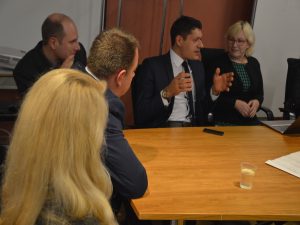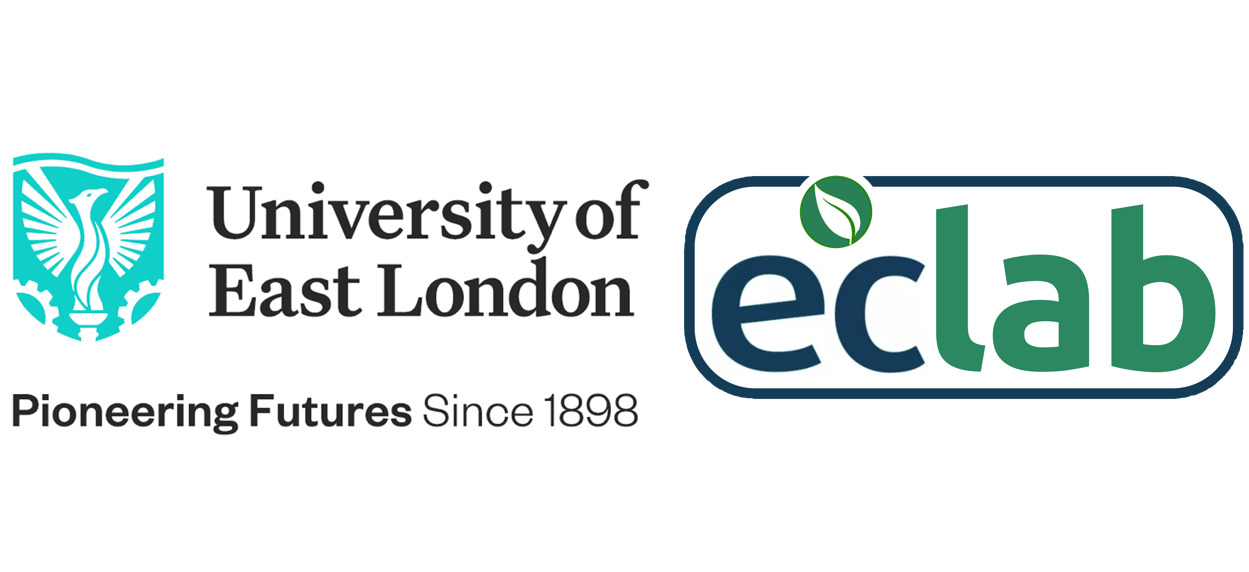14 November 2015
Active, two-way communication with the relevant stakeholder groups is a key strategy to maximizing EC Lab’s (as part of the EURECA project) impact and exchange know-how. This is why EURECA undertakes a series of knowledge sharing events across Europe with a wide range of organizations to build a network of partners with common interest, create joint development and ensure joint benefits.
On November 12, 2015 we were honoured to be received by representatives from the Latvian public sector in beautiful Riga for a co-organised full-day event at City Council on Public procurement of data centre (related) products and services.
The EURECA workshop in Riga can be considered a continuation of the collaboration on smart city issues started by Riga and Green IT Amsterdam Region and others in the Green IT Network Europe. Riga has also committed to ambitious energy and climate targets as a smart city (SEAP). The engagement with diverse stakeholders is an important feature for Riga, including presence of local decision makers at the important events. This made Riga a natural choice for the EURECA project to reach out to as collaborative partner.
The overall objectives of the Riga event was to
- have everyone involved to come away with useful insights,
- discuss with the public sector in Latvia, such as Riga City and the Ministry of Environmental Protection and Regional Development of Latvia, the potential added value of EURECA’s framework and tool in the context of Latvian needs and ambitions, and
- create a desire and motivation for further collaboration and sharing of knowledge between all present stakeholders.
Addressing the guests from Latvia’s cities – Jūrmala, Valmiera, Ventspils, amongst others, and several companies, Ms. Inete Ielīte, Riga SEAP Management Board Member, emphasised the value of knowledge sharing in building competitive and sustainable communities and for stakeholders in Riga and across Latvia to cooperate. Mr. Jaak, Vlasveld, Director of Green IT Amsterdam confirmed this wholeheartedly. “Results of such efforts in the Amsterdam region are showing, giving us incentives to take it to the next level. Our previous collaboration with Riga has been equally positive and we are pleased to see this continued.”
The morning focused on show-casing several interesting best-practice examples from outside of Latvia, such as Telecity’s findings of success-stories’ deciding factors, a case study from University of Hertfordshire, and guidelines used in the German public sector. In addition, Lauris Linabergs from Ministry of Environmental Protection and Regional Development of Latvia shared the ministry’s ambitions of sustainability and public procurement related to Public IT infrastructure. “For me this was a great opportunity to communicate ideas and gather some feedback regarding procurement of public administration [related] information systems. Constructive feedback from municipalities on previous cooperation experiences was really useful as well as ideas for the new cooperation projects.”
 The afternoon session was all about interaction with round-table discussions in two groups. In the first group the discussion focused on “Regional cooperation as a first step in addressing city’s needs?” Here the aim was to identify what is needed for the different Latvian public sector bodies to further improve collaborations based on previous experiences.
The afternoon session was all about interaction with round-table discussions in two groups. In the first group the discussion focused on “Regional cooperation as a first step in addressing city’s needs?” Here the aim was to identify what is needed for the different Latvian public sector bodies to further improve collaborations based on previous experiences.
The second group focused on “Determining your ambition levels: What are the next steps your cities can take?” The goal for this discussion was for each representative to be able to set new realistic energy efficiency goals and accompanying strategy by exchanging different experiences and insights between public sector, industry and the EURECA team.
A general conclusion of the round-table discussions was that there is a shared ambition to be able to anticipate the data growth that is accompanying the growth of smart(er) digital services; and to achieve this through resource efficiency based solutions and through local and cross-border collaboration and knowledge sharing. Cost, social (societal) and sustainability are the key drivers and therefor there is need for targets using effective related standards, metrics and KPI’s.
As EURECA project we came away with a confirmation of the differences in varying European regions, regarding approaches, needs and requirements, but also a confirmation of common challenges. This common ground determines the foundation of what the EURECA framework is based on, the differences highlight the required flexibility that needs to be built into the envisioned tool. Martins Plikss, on behalf of Riga Information Technology Centre assured that the workshop proved the added value of cities sharing their knowledge and experiences to help create the tools [such as EURECA] that enable the ‘greening of cities’ with ICT.
We would like to thank everyone who contributed to and participated in the event, we have thoroughly enjoyed learning more about the local public and data centre sector AND, of course, the Latvian history and culture.

